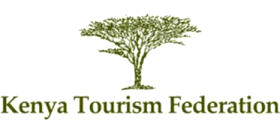Kenya's Tourism Sector Erupts Over New KWS 'Hidden' Charges
The Kenya Tourism Federation (KTF) has voiced strong objections to recent modifications made by the Kenya Wildlife Service (KWS) to its park-entry payment system. Terming the new model “unacceptable” and financially punitive, KTF Chairperson Fred Odek stated that the upgraded portal, rolled out despite an existing court order, restricts payment options and introduces a hidden 5 percent “gateway fee” that only becomes apparent at the point of payment. This move has been described as “discriminatory and unlawful,” with warnings that it could compromise Kenya's standing as a leading global safari destination. Odek emphasized the lack of public participation in the process and highlighted that Kenya is governed by the rule of law, making such unilateral changes problematic.
The federation argues that the 5 percent gateway charge, levied on top of standard park-entry fees, lacks any legal basis and is set to significantly inflate operating costs for tour operators, many of whom handle substantial daily payments to KWS. The new payment system's limitation to only M-Pesa and Visa card transactions creates significant bottlenecks, particularly during peak tourist seasons when card limits are frequently reached. KTF stressed that these gateway fees are “inequitable and discriminatory” because they charge different operators varying higher fees for the same service, contrasting with industry practice which typically offers discounts for higher volumes.
KTF estimates that the tourism sector stands to incur more than Sh370 million annually in additional, unbudgeted costs due to these gateway fees, a figure based on projected 2024 park-revenue figures of Sh7.41 billion. Odek further cautioned that these charges could tarnish Kenya's reputation among international visitors, making Kenyan safaris more expensive and potentially driving tourists to alternative destinations across Africa. The federation also accused KWS of flouting a court order issued on October 1, 2025, which had prohibited the implementation of new park-fee rates, asserting that KWS should have reverted to the previous eCitizen payment system pending the court’s final decision.
This controversy unfolds amid a broader government review of park-entry fees under the Wildlife Conservation and Management (Access and Conservation) (Fees) Regulations, 2025, which Parliament approved in September. According to the Ministry of Tourism and Wildlife's Regulatory Impact Statement, these reforms aim to boost KWS park-fee revenues from Sh7.41 billion in 2024 to Sh16.58 billion by 2028, with the goal of strengthening conservation financing. Under the proposed new structure, entry fees for Nairobi National Park were set to increase significantly, with residents paying Sh1,000 (up from Sh430) and non-residents $80 or Sh10,360 (up from $43 or Sh5,570).
Similarly, premium parks like Amboseli and Lake Nakuru were slated to charge Sh1,500 for locals and Sh11,660 for foreigners, while mid-tier parks such as Meru and Aberdare would cost Sh800 for locals and $70 or Sh9,070 for foreigners. Hell's Gate fees were also projected to rise to Sh500. While the Ministry of Tourism defends the new pricing as essential for sustainability, industry stakeholders argue that the hidden transaction costs and restrictive payment options undermine transparency and trust within the sector. Consequently, KTF is demanding the immediate suspension of the 5 percent gateway fee, the reinstatement of the former eCitizen payment platform, and strict adherence to the existing court order.
You may also like...
Shock Exit: Gary O'Neil Abandons Wolves Managerial Return Bid

Gary O'Neil has withdrawn from the running to become Wolves manager, despite reports of an imminent return to the club h...
Arteta's Fixture Fury: Arsenal Boss Demands Premier League Match Reschedule Amid Carabao Cup Crunch

Arsenal manager Mikel Arteta has called for a Premier League match to be moved, citing fixture congestion caused by a Ca...
One Piece Season 3 Casts Fan-Favorite Bon Clay Ahead of Grand Line Release

Netflix's live-action "One Piece" has announced Cole Escola will join Season 3 as the fan-favorite villain Bon Clay, a t...
Hollywood Mourns Loss of Screen Legend Diane Ladd as Daughter Laura Dern Shares Heartfelt Tribute

Three-time Oscar-nominated actress Diane Ladd has passed away at 89, leaving behind a remarkable legacy. Her daughter, L...
Lasgidi Exhibition Explodes with Fusion of Fashion and Arts in Nigeria

Discover the evolving landscape of contemporary African art at the 'LASGIDI' exhibition during Lagos Art Week, presented...
SADC Slams Tanzania's Election, Citing Flaws and Democracy Test Failure

The SADC Election Observer Mission has declared Tanzania's 2025 general election fell short of democratic standards, cit...
Strictly Star Dianne Buswell Reveals Joyful Pregnancy News to Family

Strictly Come Dancing star Dianne Buswell and Joe Sugg are expecting their first child, a baby boy. The couple shared he...
Reba McEntire Bids Farewell to 'The Voice', Sparks Hype for 'Happy's Place' Return

Reba McEntire and Belissa Escobedo offer a sneak peek into Season 2 of NBC's <em>Happy's Place</em>, discussing characte...
